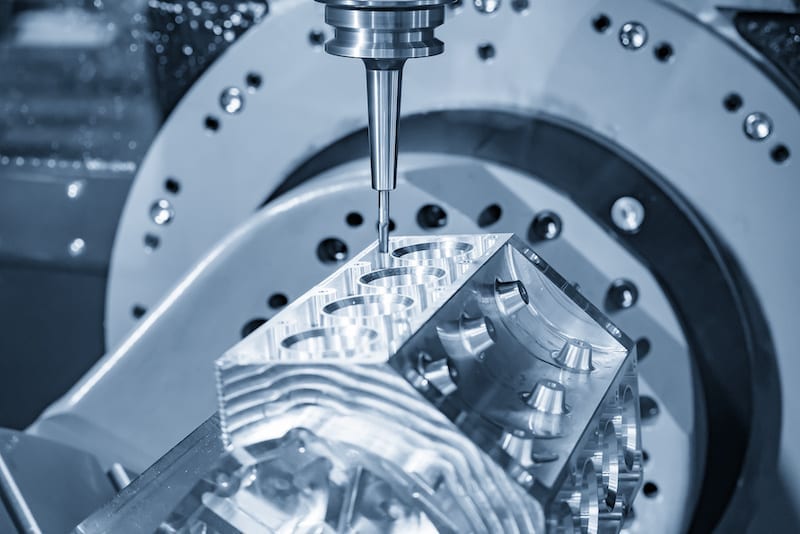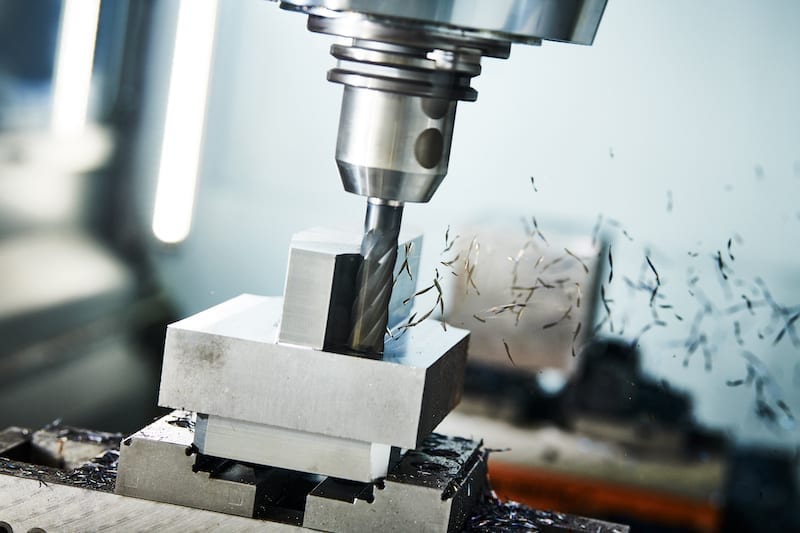Aluminum Materials
As one of the most commonly used industrial materials, aluminum is used in nearly every industry – especially those involving transportation such as aerospace, automotive, marine and railway transport. Its strength-to-weight ratio makes it an ideal material for applications that require lightweight durability.
Machining Aluminum Materials with DMS CNC Routers
The automotive industry also relies upon aluminum for its thermal and aesthetic appeal – using it for wheel spacer plates, transmission bell housings, hoods, suspension components and engine blocks. Less material weight means less energy required for acceleration and deceleration of the car. While known for its lightweight quality, still a large percentage of a typical airplane’s weight is comprised of aluminum. And although it doesn’t compete with the strength of steel, metal compound blending can improve its sturdiness.


Aluminum is a non-ferrous material, meaning that it’s not magnetic but it does tend to hold heat more than ferrous materials. Knowing about the properties of your metals helps select the best machining process for that particular application. Learn more in our blog post, A Comparison of Ferrous vs. Non-Ferrous Materials in CNC Router Applications.
Aluminum machining is one of the most common applications DMS 3 & 5 Axis CNC Routers are used for, given our international standing in the aerospace, automotive and nautical industries. DMS CNC Routers are routinely used to cut aluminum during the secondary and final stages of the machining process. A highly accurate, rigid machine is needed for refined aluminum trimming. Instead of using flood coolants to machine the aluminum down to the final cut and shape, DMS CNC Routers use micro-misting to create final shaping with final product finishing.

